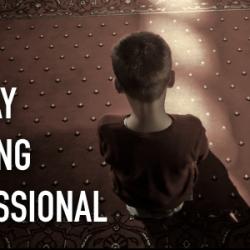I confess that I just finished Metaxas’s biography of Bonhoeffer for the second time. This time I listened to the audiobook. It’s the second time I’ve re-read an old favorite using the audiobook in order to save time. I confess that I’m beginning to really love audiobooks and am seriously thinking about making an audible.com investment. My only hesitation is that many of the nerdy theological books I want to read are not on audiobook yet.
I confess that I’m working on a new way to read non-fiction books for understanding. In his famous work How to Read a Book, Mortimer J. Adler suggests that reading deeply involves three discreet steps or “readings.” They are:
- Structural Reading – What’s the purpose, organization, structure, & scope of the book? How does the argument advance? What problem is the author attempting to solve? This reading is about trying to understand how the author has put the book together and will give only a cursory understanding of the material. Adler says the very best way to learn this is to sit down and read a book just as fast as is humanly possible. Fire through it not in order to capture the information, but to understand the structure of the book and the basic form the argument takes.
- Interpretive Reading – This is where most of us operate. This is the reading where we try to fully comprehend the author’s case. We try to fully understand all of the inner logic, new vocabulary, and research the author has done. We want to be able to fully construct the author’s argument from top to bottom. This is a close and careful reading which attempts a comprehensive understanding of the material.
- Critical Reading – After the first two readings, we know what the author is saying and how they are saying it. In this phase we will criticize it. Where is it weak or strong? Where is it compelling? Where is it derivative? Why does it work/not work? Where should it be positioned among other literature? (This phase will often be where you force the work at hand to bump up against other important works that you have previously read). Is it an important work, if so why? Is it an unimportant work, if so why not? Did the author do what he/she set out to do? How could they have done it better?
With easy books (Rob Bell for instance), you can do this all in a single reading. For difficult books, Karl Barth for instance, it takes at least two readings (for me), if not three. So here’s my idea.
When reading an audiobook, it’s possible to turn the speed up to 3x’s the normal speed. It takes a few minutes to adjust to it if you are not used to it, but I’ve found that once I’m tracking it’s the perfect speed for me to stay highly engaged for a longer period of time. I’m thinking, why not use audiobook for the structural reading – especially if you have the book in hand and can look at the Chapters, sections, and the ways in which the author has broken their book up for us? You can get through a 15 hour book in 5 hours, maybe less if you do some skipping. Step two you read the actual paper book. Step three could be another audiobook reading. I think it’s fool-proof except for one minor detail. Not all of the books I want (theological works in particular), are produced on audiobook.
I’m seriously thinking about trying this out on something. I need a test book… still ruminating on that one.
I confess that the above discussion exposes me to the critique that I take reading way too seriously and need to get out more. So I confess that it’s possible that I take reading way too seriously and need to get out more.
I confess that I’m being completely schooled by a couple of brilliant, insightful, and articulate women right now. One is Barbara Brown Taylor, whose books Leaving Church and Home By Another Way, have been with me fairly regularly for the past few months. The other is Brene Brown who has been teaching me a lot about myself, and about the society in which we live. Her three TED talks and two books have been a source of serious introspection and inspiration. She’s the best I’ve ever heard speak on vulnerability & shame. Today I’m thanking God for them.
I confess that I am going to Conception Abbey for the next three days and might be inconsistent on the blog as I’m not sure if their firewall will allow me to check in on Patheos. I know that I’m locked out of all social media to be sure while I’m there. I’ll be missing out on world events & hiding away to be completely unproductive and pray with the monks. Peace of Christ to you all.
Okay, I’ve made my (strange) confession. Now you make yours!










